David Jack Holt est un Acteur Américain né le 14 aout 1927 à Jacksonville (Etats-Unis)

David Jack Holt (mostly known as David Holt; August 14, 1927 – November 15, 2003) was an American actor initially groomed at the age of seven to be the male Shirley Temple. After being let down by Will Rogers, stress, polio, and resentment from his father precipitated his downfall, which culminated in being reduced to starring in the cheap drugs-scare melodrama "She Shoulda Said 'No'!", at the age of 22. By the time he was 25, no acting parts were available for him and he eventually turned to songwriting, where he had some moderate success before his death in 2003 at the age of 76.
With no income, Holt's father worked as a casual laborer. Holt's mother took Holt to auditions, sometimes sharing transport with Shirley Temple and her mother. Initially, Holt found it difficult to get acting jobs. He did, however, get a job as "body double" for Cheeta's chimpanzee predecessor in the 1933 film Tarzan the Fearless and had a small role in the 1933 Our Gang (Little Rascals) comedy Forgotten Babies.
At age seven, in 1934, Holt got his acting break in the movie You Belong to Me, a melodrama in which his character's parents dies. He was now a child star, and Paramount Pictures put him under a long-term contract and promoted him as a male version of Shirley Temple. Over the next six years, Holt made 20 films, but did not come close to the superstar status set by his friend, Shirley Temple.
Holt was initially cast in the title role in David Copperfield, alongside W. C. Fields' character, Wilkins Micawber. However, producer David O. Selznick developed misgivings about having an American youngster portray a quintessentially British boy. When English child actor Freddie Bartholomew became available a couple of weeks into shooting, Holt was let go. Holt had a prominent role in the 1936 movie Straight from the Shoulder (also known as Johnny Gets His Gun) alongside noted actor Ralph Bellamy. Holt eventually developed a reputation as a troublemaker, and found himself settling for supporting roles in The Adventures of Tom Sawyer (1939), Beau Geste (1939), and Courage of Lassie (1946) as Elizabeth Taylor's older brother. Holt may be best remembered as the older Billy in the 1942 critically and publicly acclaimed film, The Pride of the Yankees, where 17-year-old Billy attends Lou Gehrig Day and shows Lou Gehrig that Billy now can walk without a limp, implying that Gehrig's promised World Series home runs many years ago helped a young Billy overcome his childhood illness.
Holt's stress may have been a source of his troublemaking and his restricted success as an actor. Holt made more money than his father, who openly expressed his resentment at making so much less income than his prepubescent son. The production line of movies in which Holt was cast compounded his household stress. Holt and his family's expenses soon exceeded Holt's income and the family eventually had to rely on soup kitchens. At one point Holt had polio, which he believed was a result of the stress he felt in the studios. Amidst all this, Holt's parents separated.
At age 14, Holt largely turned his back on acting in favor of songwriting and poetry. Attempting to return to acting in 1948, he found few parts available, and ended up starring in the 1949 cheap drugs-scare melodrama "She Shoulda Said 'No'!". By the early 1950s, the parts had dried up and Holt returned to song writing.
Source : Wikidata
David Jack Holt

- Infos
- Photos
- Meilleurs films
- Famille
- Personnages
- Récompenses
Nationalité Etats-Unis
Naissance 14 aout 1927 à Jacksonville (Etats-Unis)
Mort 15 novembre 2003 (à 76 ans) à San Juan Capistrano (Etats-Unis)
Naissance 14 aout 1927 à Jacksonville (Etats-Unis)
Mort 15 novembre 2003 (à 76 ans) à San Juan Capistrano (Etats-Unis)
Biographie
Holt was born on August 14, 1927 in Jacksonville, Florida. Four years later, his sister Betty was born, who also became an actor. At a young age, Holt's dancing skills so impressed the actor and wit Will Rogers that Rogers purportedly told Holt's mother that if ever they were in Hollywood they should contact him and he would get young David into pictures. Relying on this understanding, Holt's father promptly quit his job with Ford Motors. Intent on holding Rogers to his promise, the Holt family drove to California. Despite their best efforts, Rogers refused even to see them.With no income, Holt's father worked as a casual laborer. Holt's mother took Holt to auditions, sometimes sharing transport with Shirley Temple and her mother. Initially, Holt found it difficult to get acting jobs. He did, however, get a job as "body double" for Cheeta's chimpanzee predecessor in the 1933 film Tarzan the Fearless and had a small role in the 1933 Our Gang (Little Rascals) comedy Forgotten Babies.
At age seven, in 1934, Holt got his acting break in the movie You Belong to Me, a melodrama in which his character's parents dies. He was now a child star, and Paramount Pictures put him under a long-term contract and promoted him as a male version of Shirley Temple. Over the next six years, Holt made 20 films, but did not come close to the superstar status set by his friend, Shirley Temple.
Holt was initially cast in the title role in David Copperfield, alongside W. C. Fields' character, Wilkins Micawber. However, producer David O. Selznick developed misgivings about having an American youngster portray a quintessentially British boy. When English child actor Freddie Bartholomew became available a couple of weeks into shooting, Holt was let go. Holt had a prominent role in the 1936 movie Straight from the Shoulder (also known as Johnny Gets His Gun) alongside noted actor Ralph Bellamy. Holt eventually developed a reputation as a troublemaker, and found himself settling for supporting roles in The Adventures of Tom Sawyer (1939), Beau Geste (1939), and Courage of Lassie (1946) as Elizabeth Taylor's older brother. Holt may be best remembered as the older Billy in the 1942 critically and publicly acclaimed film, The Pride of the Yankees, where 17-year-old Billy attends Lou Gehrig Day and shows Lou Gehrig that Billy now can walk without a limp, implying that Gehrig's promised World Series home runs many years ago helped a young Billy overcome his childhood illness.
Holt's stress may have been a source of his troublemaking and his restricted success as an actor. Holt made more money than his father, who openly expressed his resentment at making so much less income than his prepubescent son. The production line of movies in which Holt was cast compounded his household stress. Holt and his family's expenses soon exceeded Holt's income and the family eventually had to rely on soup kitchens. At one point Holt had polio, which he believed was a result of the stress he felt in the studios. Amidst all this, Holt's parents separated.
At age 14, Holt largely turned his back on acting in favor of songwriting and poetry. Attempting to return to acting in 1948, he found few parts available, and ended up starring in the 1949 cheap drugs-scare melodrama "She Shoulda Said 'No'!". By the early 1950s, the parts had dried up and Holt returned to song writing.
Le plus souvent avec
Filmographie de David Jack Holt (25 films)
Acteur
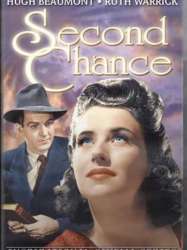
Second Chance (1950)
, 1h12Réalisé par William Beaudine
Origine Etats-Unis
Genres Drame, Guerre, Romance
Acteurs Ruth Warrick, Hugh Beaumont, John Hubbard, John Holland, Ellye Marshall, David Jack Holt
Rôle Jimmy Dean
Note57%





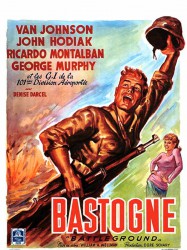
Bastogne (1949)
, 1h58Réalisé par William A. Wellman
Origine Etats-Unis
Genres Drame, Guerre, Comédie, Action, Aventure
Thèmes Politique
Acteurs Van Johnson, John Hodiak, George Murphy, Ricardo Montalbán, James Whitmore, Don Taylor
Note73%





Seconde Guerre mondiale, décembre 1944 : La 101e Division aéroportée atteint la ville de Bastogne. Holley, un soldat, se lie avec Denise. La progression se poursuit, mais le barrage de l'armée allemande est acharné alors qu'elle semblait vouée à la déroute.
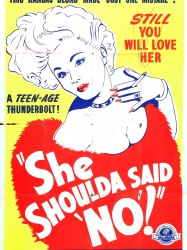
Plaisirs interdits (1949)
, 1h10Réalisé par Sam Newfield
Origine Etats-Unis
Genres Drame, Policier
Thèmes Maladie, Psychotrope, Documentaire sur la santé
Acteurs Alan Baxter, Lyle Talbot, Lila Leeds, David Jack Holt, Donald Patrick Harvey II, Joseph Kenneth Shovlin
Rôle Bob Lester
Note44%





La carrière d'une choriste est ruinée et son frère est poussé au suicide lorsqu'elle commence à fumer de la marijuana.

Le Courage de Lassie (1946)
, 1h32Réalisé par Fred M. Wilcox
Origine Etats-Unis
Genres Drame, Aventure
Thèmes Mise en scène d'un animal, Mise en scène d'un chien, Films pour enfants, Mise en scène d'un mammifère
Acteurs Pal, Elizabeth Taylor, Frank Morgan, Harry Davenport, Selena Royle, Tom Drake
Rôle Pete Merrick
Note61%





L'un des fils de Lassie, Bill, s'est perdu dans les bois où il a grandi. La jeune Katie Merrick le recueille et Harry MacBain lui apprend à garder les moutons. Un camion renverse un jour le chien. Il est conduit dans une clinique vétérinaire mais personne ne sait son nom. Smitty, un militaire devient son maitre...

Hot Cargo (1946)
, 57minutesRéalisé par Lew Landers
Origine Etats-Unis
Genres Drame, Aventure, Romance
Acteurs William Gargan, Jean Rogers, Phillip Reed, Harry Cording, Will Wright, Virginia Brissac
Rôle Peter Chapman
Note52%





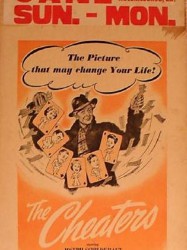
The Cheaters (1945)
, 1h27Réalisé par Joseph Kane
Origine Etats-Unis
Genres Drame, Comédie
Thèmes Noël
Acteurs Joseph Schildkraut, Billie Burke, Eugene Pallette, Ona Munson, Raymond Walburn, Ann Gillis
Rôle Reggie Pidgeon
Note67%






Henry Aldrich, Boy Scout (1944)
, 1h6Origine Etats-Unis
Genres Comédie
Acteurs Jimmy Lydon, Charles Smith, John Litel, Darryl Hickman, Olive Blakeney, Minor Watson
Rôle Irwin Barrett (uncredited)
Note63%






Destroyer (1943)
, 1h39Réalisé par William A. Seiter, Ray Enright
Origine Etats-Unis
Genres Drame, Guerre, Aventure
Thèmes La mer, Transport, Politique, Forces armées des États-Unis
Acteurs Edward G. Robinson, Glenn Ford, Marguerite Chapman, Edgar Buchanan, Leo Gorcey, Regis Toomey
Rôle Sobbing Sailor
Note62%





Pendant la Seconde Guerre mondiale sur un bateau de l'armée américaine, un vieux commandant voit son autorité contestée par un jeune marin.
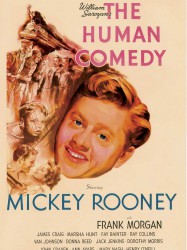
Et la vie continue (1943)
, 1h58Réalisé par Clarence Brown
Origine Etats-Unis
Genres Drame, Comédie
Thèmes Politique
Acteurs Mickey Rooney, Frank Morgan, James Craig, Marsha Hunt, Fay Bainter, Ray Collins
Rôle Hubert Ackley III
Note69%





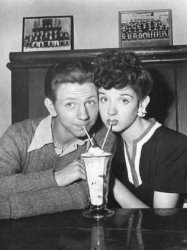
Top Man (1943)
, 1h14Réalisé par Charles Lamont
Origine Etats-Unis
Genres Comédie, Musical
Thèmes Musique
Acteurs Donald O'Connor, Susanna Foster, Lillian Gish, Richard Dix, Peggy Ryan, Anne Gwynne
Rôle Archie Fleming
Note69%






Vainqueur du destin (1942)
, 2h8Réalisé par Sam Wood
Origine Etats-Unis
Genres Drame, Biographie, Romance
Thèmes Sport, Baseball
Acteurs Gary Cooper, Teresa Wright, Walter Brennan, Dan Duryea, Elsa Janssen, Ludwig Stössel
Rôle Billy (Age 17)
Note75%





Ce film autobiographique retrace la carrière du joueur de baseball Lou Gehrig. Enfant, Lou Gehrig rêve de devenir champion de baseball ; ses parents, eux, rêvent de faire de leur fils un ingénieur. La grand-mère de Lou travaille comme cuisinière de l'université Columbia et le fait admettre à l'université. Lou travaille comme serveur au restaurant universitaire. Remarqué pour ses dons de sportif, Lou devient membre du club mais se heurte à l'hostilité de certains membres, des snobinards imbus d'eux-mêmes. Le journaliste sportif Sam Blake le recommande au Yankees de New York ; la santé de sa mère nécessitant une intervention chirurgicale coûteuse, Gehrig abandonne ses études et signe un contrat avec les Yankees afin de pouvoir disposer de la somme nécessaire. Sa mère croit de son côté qu'il étudie toujours à l'université mais finit bientôt par s'apercevoir que son fils joue au baseball professionnel.

Adieu jeunesse (1941)
, 1h26Réalisé par Henry King
Origine Etats-Unis
Genres Drame, Guerre, Romance
Thèmes Le thème de l'éducation, Films pour enfants
Acteurs Claudette Colbert, John Payne, Shepperd Strudwick, Ann Todd, Ann E. Todd, Ann E. Todd
Rôle Pitcher (uncredited)
Note71%





Une enseignante tente de rencontrer le candidat à la Maison Blanche. Elle est, en effet, son ancien professeur.

Beau Geste (1939)
, 1h52Réalisé par William A. Wellman, Richard Talmadge
Origine Etats-Unis
Genres Drame, Guerre, Action, Aventure
Thèmes L'armée française
Acteurs Gary Cooper, Ray Milland, Robert Preston, Brian Donlevy, Susan Hayward, J. Carrol Naish
Rôle Augustus Brandon (as a Child)
Note74%





'Beau', John et Digby Geste sont trois frères inséparables adoptés par la riche Lady Brandon. La disparition soudaine de son saphir, le 'Blue Water', pousse les frères à fuir la maison. Ils se retrouvent engagés dans la Légion étrangère, où ils affrontent autant leur sergent sadique que les rebelles arabes...
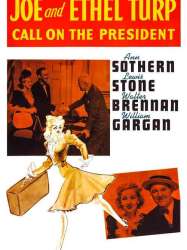 , 1h10
, 1h10Réalisé par Robert B. Sinclair
Origine Etats-Unis
Genres Comédie
Acteurs Ann Sothern, Lewis Stone, Walter Brennan, William Gargan, Marsha Hunt, Tom Neal
Rôle Fred
Note61%






Les Aventures de Tom Sawyer (1938)
, 1h33Réalisé par George Cukor, Norman Taurog, H. C. Potter, William A. Wellman
Origine Etats-Unis
Genres Drame, Aventure
Thèmes L'enfance
Acteurs Jackie Moran, Tommy Kelly, May Robson, Ann Gillis, Walter Brennan, Victor Jory
Rôle Sid Sawyer
Note69%





Chronique enfantine dans le Missouri de 1850.
 Connexion
Connexion



